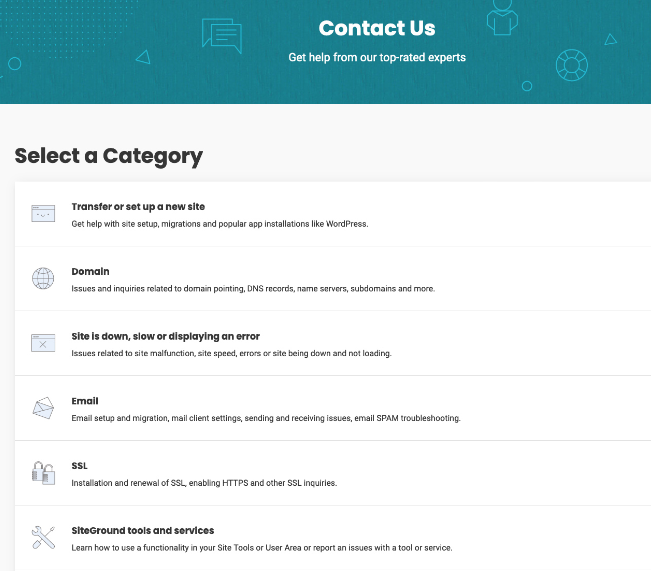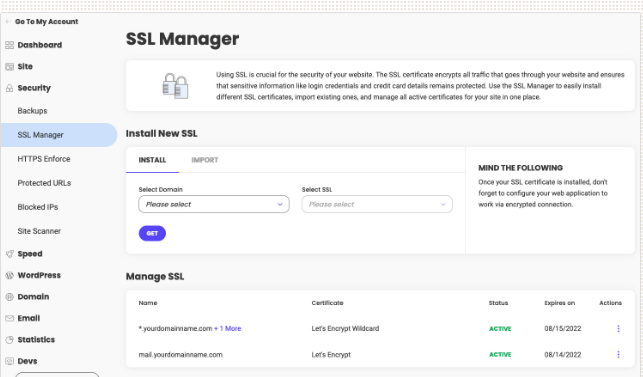Introduction
Choosing the right web hosting provider is crucial for your website’s success, and the choice between Bluehost vs SiteGround can be challenging. Both hosting giants come highly recommended for web design and development, yet they cater to different needs and preferences. In this comprehensive comparison, we’ll examine the key features, performance metrics, pricing, and support options of Bluehost and SiteGround to help you determine which provider aligns best with your requirements. Whether you’re a beginner seeking user-friendly tools or a seasoned developer looking for advanced features, this guide will assist you in making an informed decision.

Table of Contents
The Importance of Choosing the Right Hosting Provider
Selecting the right hosting provider is crucial when comparing Bluehost vs SiteGround. Whether you’re running a personal blog, a small business site, or a large e-commerce platform, the performance, reliability, and features of your hosting provider can make or break your online presence. In the battle of Bluehost vs SiteGround, understanding how each provider measures up is essential. In this article, we’ll delve into a side-by-side comparison of Bluehost vs SiteGround, focusing on aspects that matter most to web designers and developers.
Bluehost vs SiteGround: An Overview
Before diving into specifics, let’s briefly overview what Bluehost vs SiteGround offer:
Bluehost: Known for its strong integration with WordPress, Bluehost provides a range of hosting options, including shared, VPS, and dedicated servers. It’s widely recommended for beginners due to its user-friendly interface and extensive support resources.

SiteGround: Renowned for its excellent customer support and high-performance features, SiteGround also provides a variety of hosting services. SiteGround is particularly praised for its superior speed and security features.

Performance and Speed
Bluehost
Speed: In the Bluehost vs SiteGround debate, Bluehost provides solid performance with its hosting services. Its shared hosting plans come with standard SSD storage that helps improve loading times. However, the speed can vary based on server load and plan type.
Uptime: Bluehost boasts a 99.9% uptime guarantee, which is generally reliable for most web projects. In the context of Bluehost vs SiteGround, uptime is crucial because even minor downtimes can affect your website’s performance and SEO rankings.

SiteGround
Speed: SiteGround often outperforms Bluehost in terms of speed. This is partly due to its use of SSDs across all plans, coupled with advanced caching technologies like SuperCacher. These features contribute to faster load times and a better overall user experience in the Bluehost vs SiteGround comparison.
Uptime: SiteGround offers a similar 99.9% uptime guarantee. Many users report even better reliability, thanks to SiteGround‘s robust infrastructure and proactive monitoring.

Customer Support
Bluehost
Support Channels: In the Bluehost vs SiteGround showdown, Bluehost offers 24/7 customer support through phone, live chat, and email. The support team is generally responsive and knowledgeable, but some users have reported longer wait times during peak hours.

Knowledge Base: Bluehost has an extensive knowledge base and a range of video tutorials, which can be particularly helpful for beginners. However, advanced issues might require direct interaction with support staff.
SiteGround
Support Channels: SiteGround is renowned for its exceptional customer support in the Bluehost vs SiteGround comparison. They offer 24/7 support via live chat, phone, and tickets. Their support staff are known for their expertise and promptness in resolving issues.

Knowledge Base: SiteGround’s knowledge base is comprehensive and well-organized. It provides detailed articles and guides on various topics, making it easy for users to find solutions to common problems.
Features and Tools
Bluehost
WordPress Integration: Bluehost is officially recommended by WordPress.org, which speaks volumes about its WordPress integration. The one-click WordPress installation and automatic updates simplify the management of WordPress sites.
Control Panel: Bluehost uses a custom control panel that is designed to be user-friendly. It offers easy access to essential features and settings.
Additional Tools: Bluehost includes free domain registration for the first year, a website builder, and marketing credits. These tools are beneficial for users looking to get started quickly.
SiteGround
WordPress Integration: SiteGround also offers excellent WordPress integration with a one-click installer and automated updates. It includes features like WP-CLI (WordPress Command Line Interface) for advanced users.
Control Panel: SiteGround uses a custom control panel that is known for its simplicity and ease of use. It provides access to a range of features without overwhelming the user.
Additional Tools: SiteGround includes free daily backups, enhanced security features like firewall protection, and CDN (Content Delivery Network) integration. These tools are particularly valuable for users focused on performance and security.
Pricing and Plans
Bluehost
Pricing Structure: Bluehost’s pricing is competitive, with introductory offers making it an attractive option for new users. Their shared hosting plans start at a lower price, but renewal rates can be significantly higher.
Plan Options: Bluehost offers a variety of plans including Basic, Plus, Choice Plus, and Pro. Each plan comes with different features and limitations, allowing users to select according to their needs.

SiteGround
Pricing Structure: SiteGround’s pricing is generally higher than Bluehost’s, especially for the introductory offers. However, the higher cost reflects the premium features and performance.
Plan Options: SiteGround offers plans including StartUp, GrowBig, and GoGeek. Each plan provides varying levels of resources and features, catering to different types of websites and traffic levels.

Security Features
Bluehost
Basic Security: Bluehost includes free SSL certificates for all plans, which is essential for securing data transmitted between your website and its visitors. They also provide a basic set of security features to protect against common threats.

Advanced Security: For more advanced security, users might need to rely on additional plugins or services. Bluehost’s built-in security is adequate for most small to medium-sized websites but may require enhancements for more sensitive projects.
SiteGround
Basic Security: SiteGround also includes free SSL certificates and implements server-level security features. They use a proactive security approach, which includes daily malware scans and automatic updates to WordPress.

Advanced Security: SiteGround’s advanced security features include a custom firewall, anti-bot systems, and real-time security monitoring. These measures provide an added layer of protection against sophisticated attacks.
Scalability
Bluehost
Upgrade Options: Bluehost allows users to easily upgrade their plans as their website grows. This includes transitioning from shared hosting to VPS or dedicated servers. The upgrade process is straightforward, and Bluehost provides support throughout.
Resource Limits: While Bluehost’s shared hosting plans are suitable for most small to medium-sized sites, users may encounter resource limits as their traffic increases. Upgrading to higher-tier plans helps mitigate these issues.
SiteGround
Upgrade Options: SiteGround also offers flexible upgrade options. Users can start with a shared hosting plan and scale up to cloud hosting or dedicated servers as needed. The transition is seamless, with minimal downtime.
Resource Limits: SiteGround’s plans are designed to handle higher traffic volumes more effectively. Their infrastructure is optimized for scalability, making it a strong choice for rapidly growing websites.
Pros and Cons
Bluehost
Pros:
- Affordable introductory pricing
- Strong WordPress integration
- User-friendly control panel
- Free domain for the first year
Cons:
- Higher renewal rates
- Basic security features may require additional plugins
SiteGround
Pros:
- Excellent customer support
- Superior speed and performance
- Advanced security features
- Free daily backups
Cons:
- Higher pricing compared to Bluehost
- Limited resources on lower-tier plans
Conclusion: Which Is Better for Web Design & Development?
Choosing between Bluehost and SiteGround depends on your specific needs and priorities.
- Go with Bluehost if you are looking for a budget-friendly option with solid performance and strong WordPress integration. It’s particularly suitable for beginners and small to medium-sized websites.
- Opt for SiteGround if you prioritize performance, security, and exceptional customer support. SiteGround is an excellent choice for users who need advanced features and scalability, even if it comes at a higher price.
Both Bluehost and SiteGround offer valuable features, but your final choice should align with your project requirements and budget. Consider your website’s needs, traffic expectations, and any specific features you may require. Whichever provider you choose, investing in a reliable hosting solution is a crucial step towards a successful web presence.
FAQs
Which hosting provider offers the best value for money?
Bluehost typically offers better value for money with its lower introductory pricing. However, SiteGround’s higher cost reflects its superior performance and advanced features.
Can I migrate my website from Bluehost to SiteGround?
Yes, both Bluehost and SiteGround offer migration services. SiteGround’s migration service is particularly well-regarded for its efficiency.
Is SiteGround worth the higher price?
If you need advanced security features, superior performance, and excellent customer support, SiteGround’s higher price can be justified. It’s an investment in the reliability and speed of your website.

Does Bluehost offer a free domain?
Yes, Bluehost provides a free domain for the first year with its hosting plans. This can be a significant advantage for new website owners.

By understanding the key differences between Bluehost and SiteGround, you’ll be better equipped to choose the right hosting provider for your web design and development needs.





